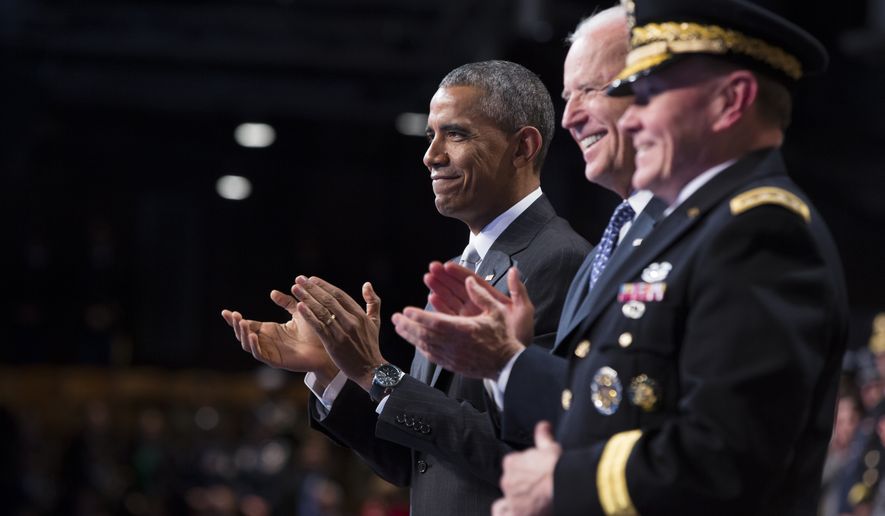Pentagon officials plan to transfer funds away from overseas military operations now that the wars in Afghanistan and Iraq have officially come to an end.
The decision to transfer the funding into another account that is subject to budget restrictions comes with fiscal and political complications.
Officials will make public the specifics of that plan in the coming months and implement changes to its Overseas Contingency Operations account beginning in 2017, according to a military source.
Those changes will take place over the span of three years, ending in 2020, if Congress approves the move.
The Pentagon’s fiscal year 2016 defense budget has a base budget of $534 billion and sets aside another $51 billion in additional funding for overseas contingency operations account. Several years ago, when U.S. troops were fighting wars in Iraq and Afghanistan, that account ballooned to $187 billion.
The multi-billion dollar overseas operations account is typically full of funding requests for weapons and equipment that support U.S. military counterterrorism operations in the Middle East and Asia.
That money is also used to pay for joint training exercises with NATO allies following the aggressive behavior that Russia has exhibited toward eastern European countries.
The account was established in 2001 and has been used – and sometimes abused – by military officials since that time, said Stephen Biddle, adjunct senior fellow for defense policy at the Council on Foreign Relations.
“The military has been sneaking all sorts of stuff into the OCO accounts for years,” he said.
One year, the U.S. Marine Corps made a request to use the funding pot to buy an F-22 jet to replace the one that it lost in a training accident, Mr. Biddle said. Military officials have also earmarked OCO money to pay for an Israeli missile defense system, known as Iron Dome.
President Obama wanted his administration to revise its overseas spending habits when he was voted into office, but was unable to make any headway with implementing the changes he envisioned due the shrinking defense budget and ongoing war in Afghanistan, said Michael O’Hanlon, a national security and defense policy analyst at The Brookings Institution.
Now, Mr. Obama wants to revisit that endeavor and begin shrinking the swollen operations account in 2017, Mr. O’Hanlon said.
But that idea seems foolhardy in the face of a restrictive restrictive spending cap, known as the Budget Control Act, which could return in fiscal year 2016, Mr. O’Hanlon said.
“As long as the Budget Control Act places firm limits on base budgets, we need the OCO account as a safety valve to fund core defense needs,” he said. “So perhaps it would be a nice thing for a future president and Congress to agree on Mr. Obama’s idea – but for now I am more struck by the fact that he doesn’t want it to happen this way anytime soon.”
• Maggie Ybarra can be reached at mybarra@washingtontimes.com.




Please read our comment policy before commenting.